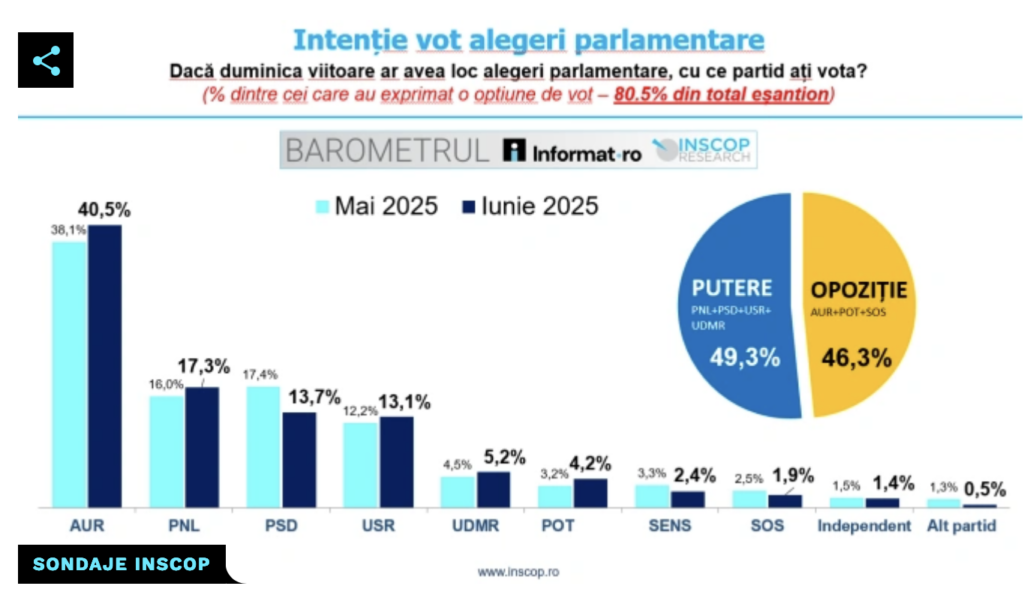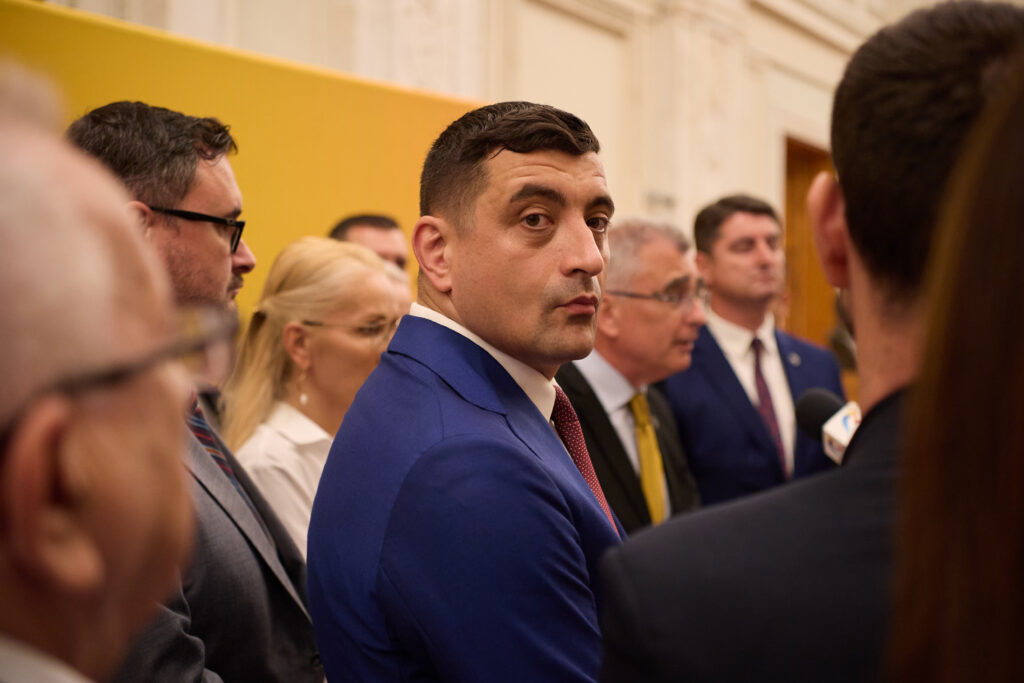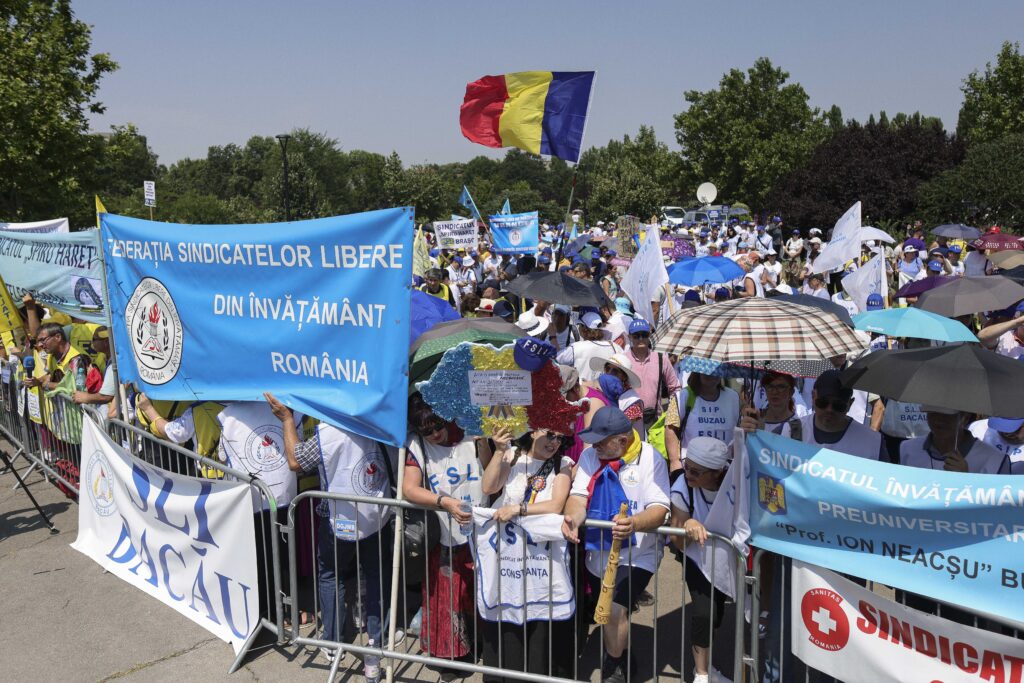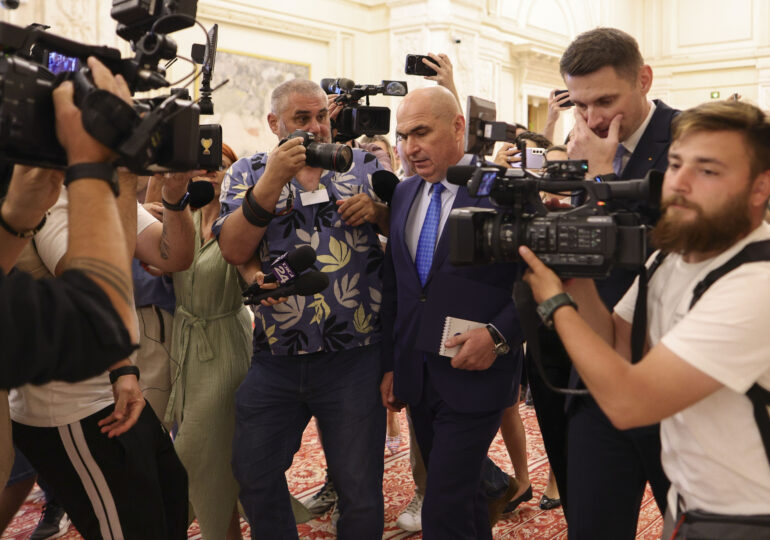The latest opinion poll shows that enthusiasm for winners is tempered, social democrats are on a downward trend, and AUR has become the dominant political force. It is not yet clear to what extent the governing coalition will withstand the challenges from society and the economy, nor what the evolution of public support will be for the formation led by George Simion.
The tax increase measures announced by Prime Minister Ilie Bolojan are unpopular, but the main goal declared by the current government was to avoid Romania’s downgrade by rating agencies in order to maintain low costs regarding state financing through loans.
Achieving this goal comes with a decline in public support for the parties in the governing coalition, which their leaders believe they can remedy after stabilizing the economy.
PSD was the big loser of the elections. For the first time in history, it did not have a candidate in the presidential final. Also, the score obtained in the parliamentary election, 23%, did not allow it to form a dominating majority, as it had done before.
Marcel Ciolacu's term as prime minister is now an additional burden for the party, as he is perceived by the public opinion as the main culprit for the steep rise in the budget deficit due to his costly attempts to become the president of Romania.
The party, led until the congress by Sorin Grindeanu, does not have much room to maneuver; exiting the government would put it in a subordinate position to AUR, which could lead in four years to either an even lower score in the parliamentary elections or to the absorption of PSD by the populist formation led by George Simion.

A Majority Forced by Circumstances
Tensions are observed within the governing coalition between USR and PSD, incompatible parties forced to govern together. The relationship between the two formations is likely to further deteriorate, endangering the political balance.
USR has an advantage; the party's founder has become the president of Romania, and it is expected that the influence and authority of Nicușor Dan will help the party, while the social democrats are required to reinvent themselves and regain at least a portion of the lost public support in recent years.
The Liberals also pin their hopes on Prime Minister Ilie Bolojan. Success under his leadership would mean a lifeline for PNL, a party heavily affected by the alliance with PSD imposed by former President Klaus Iohannis.
"Today, I come before you and all Romanians who follow us to engage the responsibility of the Government of Romania for the first package of fiscal and budgetary measures," announced Prime Minister Ilie Bolojan from the parliamentary podium.
"A set of measures that we are forced to take in a very short period. It is not an easy gesture for me, nor for my colleagues, nor for the coalition of parties that assume this decision. However, it is a national emergency and an act of responsibility," added the Prime Minister of Romania.
He also mentioned that some measures taken are temporary and will be reconsidered once the deficit is reduced and there is economic growth.
The AUR Threat
It will be very difficult for a party with such broad support, 40%, as AUR has achieved, to remain in the Opposition for four years.
Any major social and political event will represent an opportunity for the formation led by George Simion to come to power following the creation of a new majority.
When I said that a new beginning is needed, I also thought about concrete measures to restore common sense in central and local administration. Some come through education, but some also come through rules. And it is these rules that the government I lead is now addressing.
For this reason, I want to talk about the second package we are preparing in the Government. It will complement these initial measures. Therefore, by the end of July, we will return to the Romanian Parliament with the second package of measures, focusing on equity and efficiency.
Ilie Bolojan, speech in front of the Romanian Parliament, July 7, 2025
Such a process can also be triggered by certain political strategies targeted by the President of Romania, just as Iohannis did with PSD, or by agreements at the parliamentary level.
A potential conflict between the president and the prime minister could also lead to the formation of a new majority.
There is only one situation in which AUR will not come to power in the near future - a successful strategy by Nicușor Dan, coupled with economic stability and a state reform meeting the expectations of public opinion.

It must also be emphasized that Romania does not have an alternative solution to the economic development model. No EU member state does. The pandemic and the war in Ukraine were two crises that forced the European Commission to accept deficits exceeding three percent of GDP, the maximum limit accepted before corrective measures are triggered.
After the pandemic passed, and the war in Ukraine turned into a daily challenge, for efficient functioning and within the established budgetary parameters, the European Commission requires member states to gradually reduce budget deficits.
Romania has been granted a grace period of 7 years to bring the deficit down to the 3% of GDP limit.
A Postponed Reform
The economic crisis experience from 2008-2010 and the collapse of Greece's financial system in 2012 were difficult lessons that changed the economic policy of the European Union.
Regardless of which party or alliance is or will come to power, as long as Romania is a member of the European Union, it will be obliged to respect economic performance rules to access EU funds, programs, and markets of member states.
This is a truth that populist and extremist movements hide from citizens. For example, AUR cannot remain in power for even a year without the funds and economic rules of the European Union.
This is also the reason why there is such a stark difference between campaign promises and what happens after populist formations come to power, as they temper their discourse and political actions.
The Romanian governments since 2007, the year our country joined the European Union, have never truly embraced a state reform to streamline public agencies, institutions, and companies.

This area has been seen as one where privileges are offered, political criteria are used for hiring, and funds are diverted to finance parties and electoral campaigns.
Due to the requirements imposed by joining the common market, in 2012, a political movement supported by PSD emerged as a reaction to the global crisis, encouraging imbalances between the public and private sectors.
Starting with the Ponta Government, public sector salaries have increased at a faster rate and with higher proportions than those in the private sector. Consequently, public sector jobs have been sought after, increasing corruption, while a large part of the workforce is paid the minimum wage.
This type of policy has created a situation where there is a huge deficit, although Romania has access to funds like never before in history, while private companies are tens of times more efficient than those in the public system.

